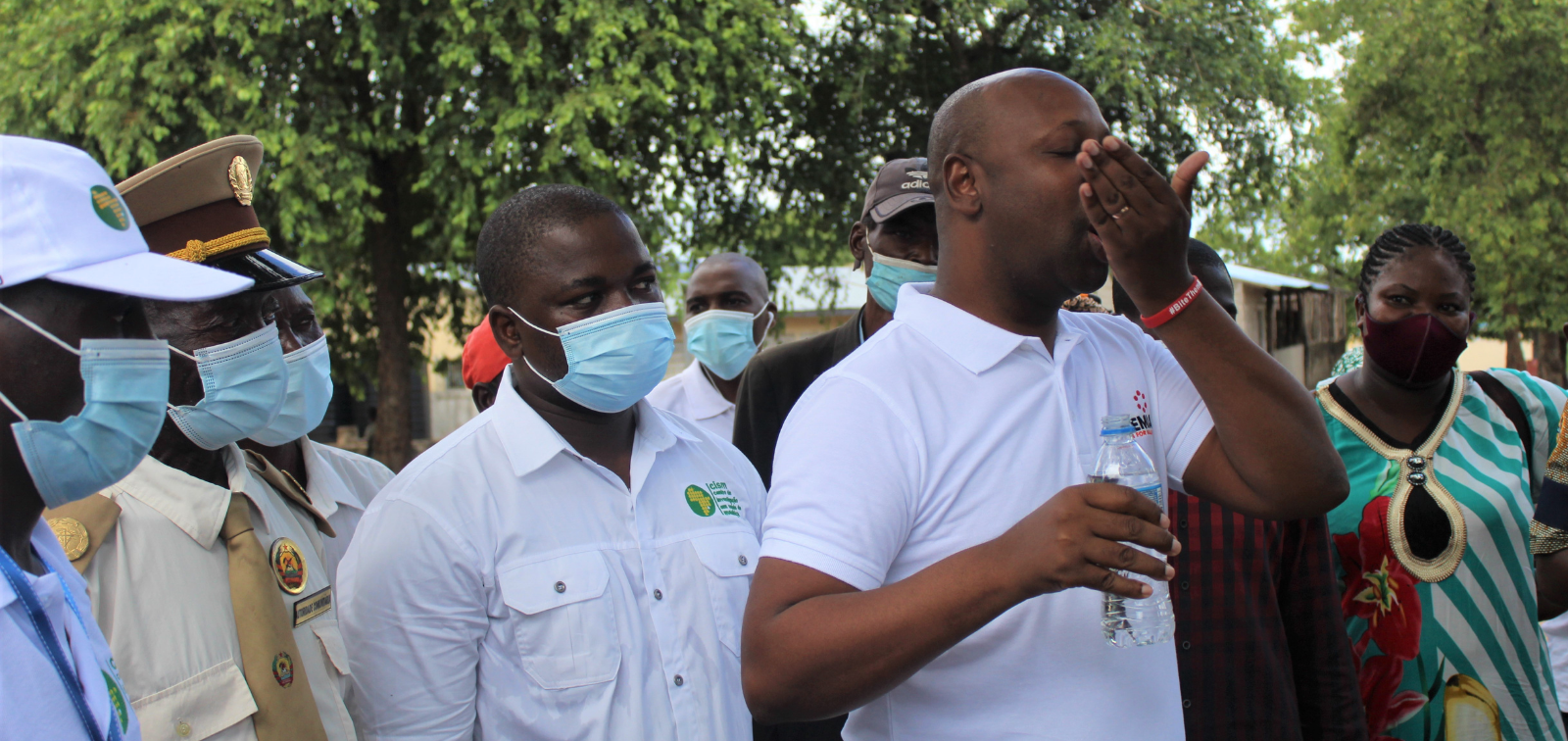BOHEMIA Project Launches Mass Administration of Ivermectin in Mozambique to Fight Malaria
The drug will be distributed to humans and livestock with an aim to reduce malaria transmission
01.04.2022
The BOHEMIA project launches its first round of mass drug administration (MDA) of ivermectin in the Mopeia district of Mozambique. The consortium, led by ISGlobal and funded by Unitaid, is exploring the potential of ivermectin to break the cycle of malaria transmission via mass drug administrations in different ecological and epidemiological settings in eastern and southern Africa.
It takes a community to break malaria transmission
The launch of the trial marks a key phase in the project as it advances from preparatory activities to generating clinical evidence.
“To imagine a malaria-free Mozambique in our lifetime, we urgently need innovative tools and approaches. We are grateful to the community in Mopeia and its leaders for their support and trust in the project,” said Francisco Saúte from Manhiça Health Research Center (CISM), BOHEMIA’s Country Principal Investigator for Mozambique.
A census in the Mopeia district registered 26,134 households with 32,300 eligible adults who could participate in the trials. Though the safety of the drug will be tested in adults, its actual efficacy will be studied in children under 5 years old (without being administered the drug). According to BOHEMIA’s Principal Investigator and ISGlobal’s Malaria Elimination Initiative Director, Regina Rabinovich, “This is important as the World Malaria Report 2021 shows that malaria affects children far more than we had estimated before. The BOHEMIA trial is unique because it positions ivermectin as a drug that can benefit the entire community, not just an individual.”
An old drug for a new purpose
Ivermectin is not a new drug for the global health community. First identified in the 1970s, this antiparasitic drug has been distributed to more than 4 billion people over the last 30 years in mass drug administration campaigns to treat neglected tropical diseases. Recent research also demonstrates that this drug can increase the mortality of mosquitos that feed on treated humans or animals during a time period that can be up to 28 days, depending on the dose. BOHEMIA seeks to build on this evidence by using ivermectin to tackle residual malaria transmission.
“In today’s context of widespread insecticide resistance, there is an urgent need for new tools in vector control strategies,” said Carlos Chaccour, the Chief Scientific Officer of BOHEMIA and researcher at ISGlobal. “Ivermectin is a drug with an excellent safety profile. We are grateful to Unitaid for supporting this investigation that could potentially become a complementary strategy to reduce malaria transmission.”
Moreover, the BOHEMIA project is guided by the One Health approach that offers an opportunity for preventing neglected tropical diseases in humans, which will have a positive impact on households. Delivery to livestock reduces the burden of intestinal helminths and ectoparasites in domesticated herds, thereby increasing income and food security. The trial’s veterinary arm will investigate the potential added benefits of administering ivermectin to livestock in the trial region.
About the BOHEMIA consortium
BOHEMIA is a consortium led by ISGlobal and supported by Unitaid. It includes three African institutions—the Manhiça Health Research Centre (CISM) in Mozambique, the Kenya Medical Research Institute (KEMRI), and the Ifakara Health Institute (IFI) in Tanzania—as well as three academic partners: the University Hospital of Bern, the University of Oxford , and Virginia Tech.






